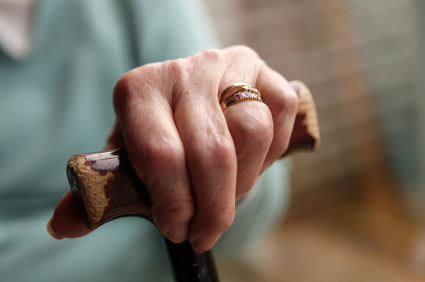 We recently lost my wonderful mother-in-law to complications from a stroke following a diagnosis of cancer. As we prepare for her memorial service, I’ve been thinking about what a blessing it’s been to be able to help care for parents in their final days—and to do so without having to worry excessively about expensive plane tickets, time off work and other potential financial burdens.
We recently lost my wonderful mother-in-law to complications from a stroke following a diagnosis of cancer. As we prepare for her memorial service, I’ve been thinking about what a blessing it’s been to be able to help care for parents in their final days—and to do so without having to worry excessively about expensive plane tickets, time off work and other potential financial burdens.
If you have parents who are elderly or in poor health, consider opening a savings account dedicated to making their lives, and yours, a little easier. That fund can pay for:
Getting there. In the five years my mom battled cancer, I spent a small fortune on plane tickets getting from my home (which was then in Anchorage) to hers in Washington state. Sometimes, these were pretty routine visits where I could plan ahead and score reasonable fares. Other times, I’d get the call that there was a crisis and that I needed to get there fast, grabbing whatever seat I could. Because I didn’t carry credit card debt and had a fat emergency fund, I was able to buy airfares without triggering a financial crisis.
Some other tips: Sometimes reward seats open up at the last minute, so if you have frequent flyer miles you can use, check out that option. If you’re within driving distance, consider buying a $50 or $100 gas card and setting that aside for use in emergencies.
Being there. About three years into her fight, Mom had a serious setback. Dad was providing most of her care and he was overwhelmed. I was able to take a two-month unpaid leave from work to help out—again, thanks to my emergency fund and to the flexibility of my employer, which held my job for me. (This was before the passage of the Family and Medical Leave Act of 1993, which allows covered employees to take unpaid, job-protected leaves to care for a spouse, child or parent with a serious health condition.) Two months with no paychecks took a serious bite out of that savings account, but I’ll never regret the cost. I was able to take another month off a couple of years later, at the end of her life, and was again so grateful to be able to be there.
Getting help. A few years ago, my father had a massive stroke while visiting a relative in Florida. We couldn’t fly him home, since he was too ill to travel. To help us manage his care long distance, we hired a geriatric care manager who was worth her weight in gold. She not only translated the medical-ese that baffled us, but helped us find a good nursing home for him and a friendly companion who could keep him company in between my frequent visits. Families are often left on their own to figure out how to care for an incapacitated relative, and she hooked us up with resources we might never have found otherwise. None of this was cheap—we spent about $10,000 on the care manager alone over four months—but she dramatically shortened our learning curve and ensured my dad got good care at the end of his life. Whenever friends are dealing with an ill or declining parent and don’t live nearby, I encourage them to hire a geriatric care manager to help them assess the situation and find solutions. A session with a care manager can even help when you live locally, since these folks live and breathe elder care, which is a new world to most of the rest of us.
It’s impossible to know in advance how much money you might need, but anything you can set aside will help ease the financial burden when the time comes to help your folks.
Thank you for bringing this to my attention. Things are a bit different here in the UK, but care for the elderly is still desparately in need of improvement.
My parents are not at this stage, but it’s always a good idea to have a back-up in case of health problems, since I live about three hours away. Emergency travel home is something that I plan to cover by my emergency fund, although later in life I’d like to be able to help with health costs if needed.
Thanks for this post.
I think the problem is that it is very hard to plan ahead for these kinds of expenses.
They tend to just come out of your savings and so having an emergency fund that can always be tapped into is certainly a good idea.
The truth is though that most people in the US both have little or no savings or are living paycheck to paycheck.
In fact 1 in 3 have no savings at all.
Survival is more the order of business for many then emergency funds I fear.